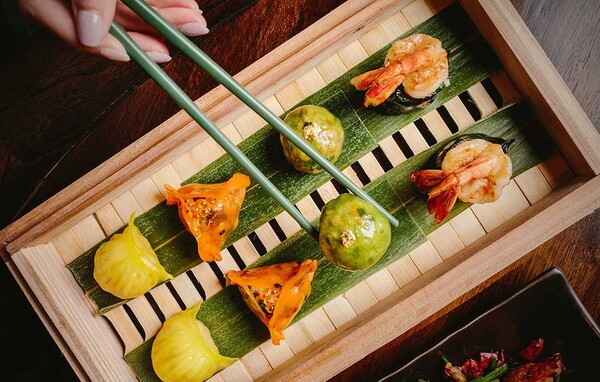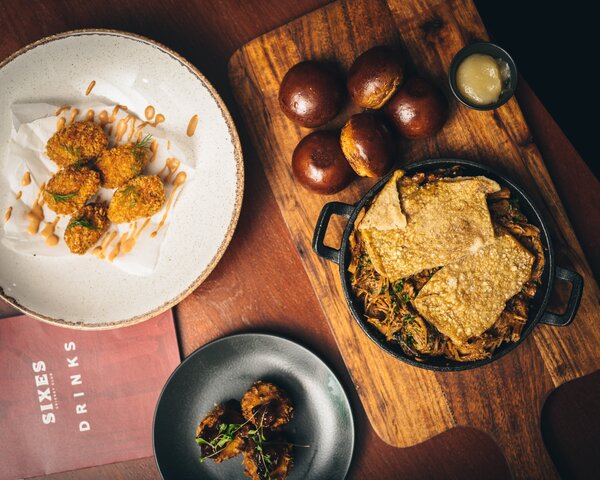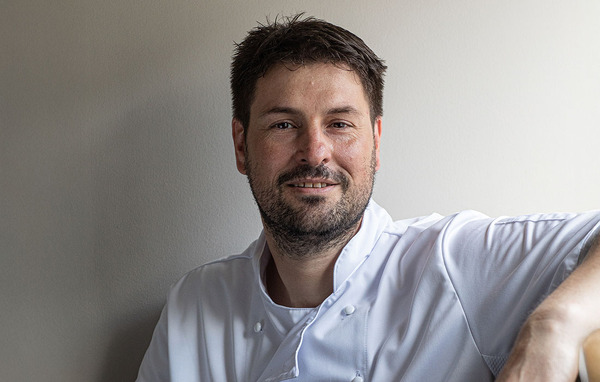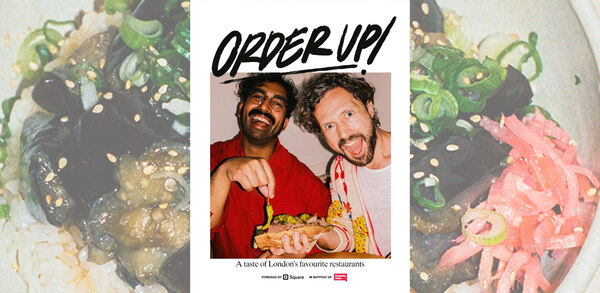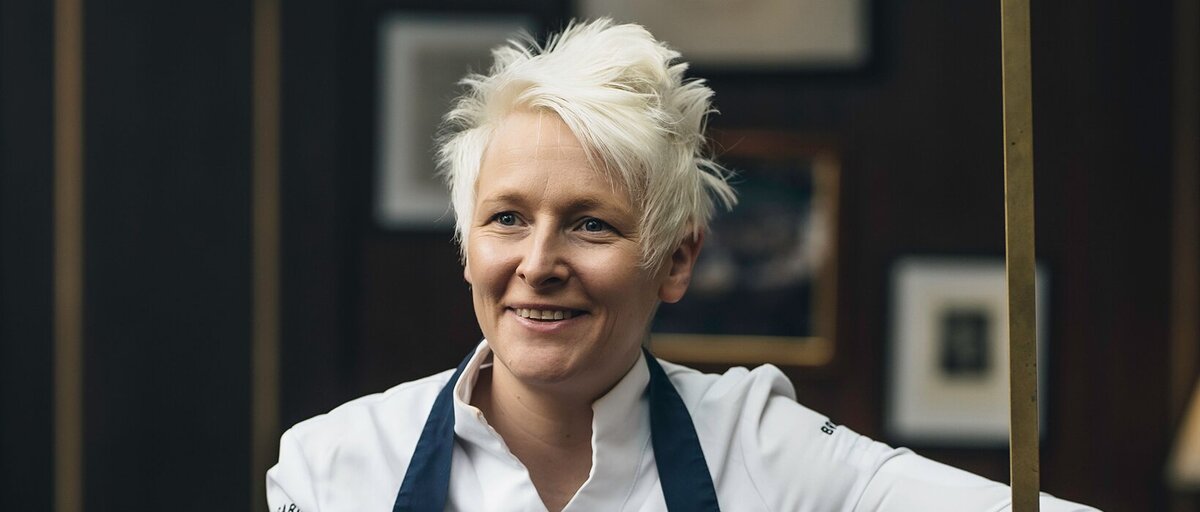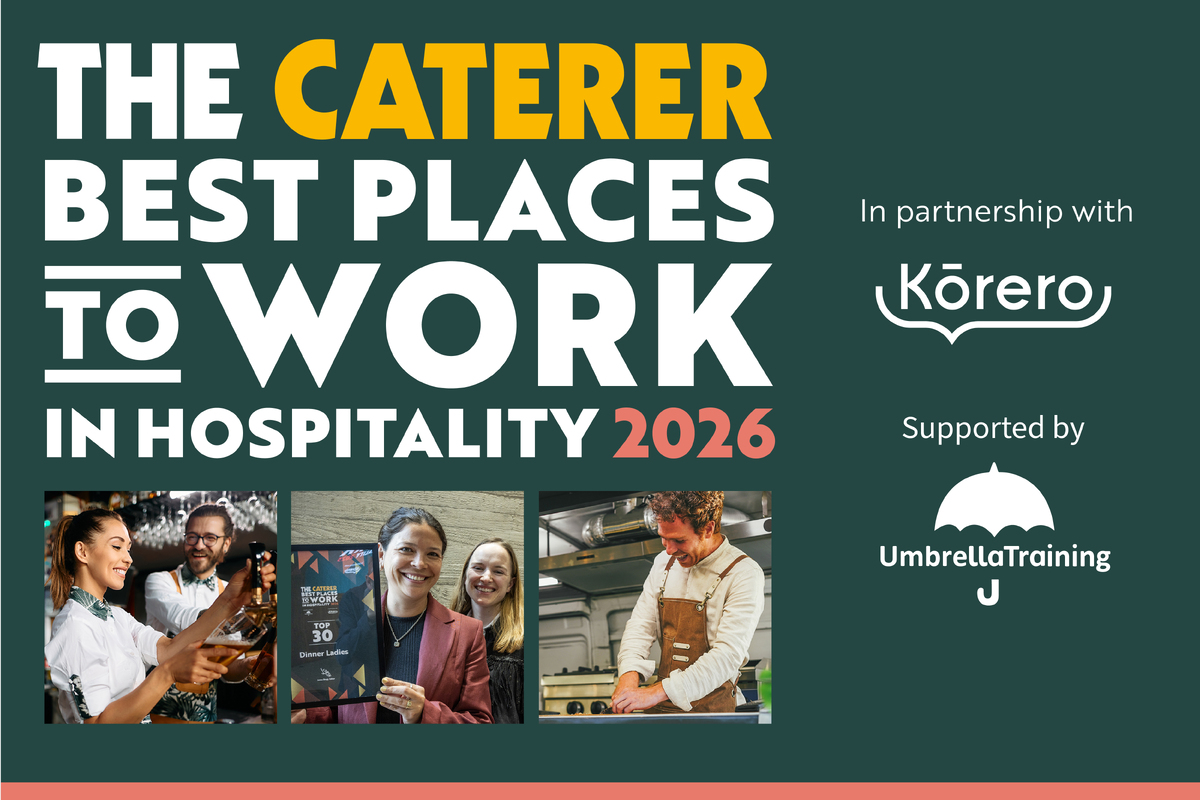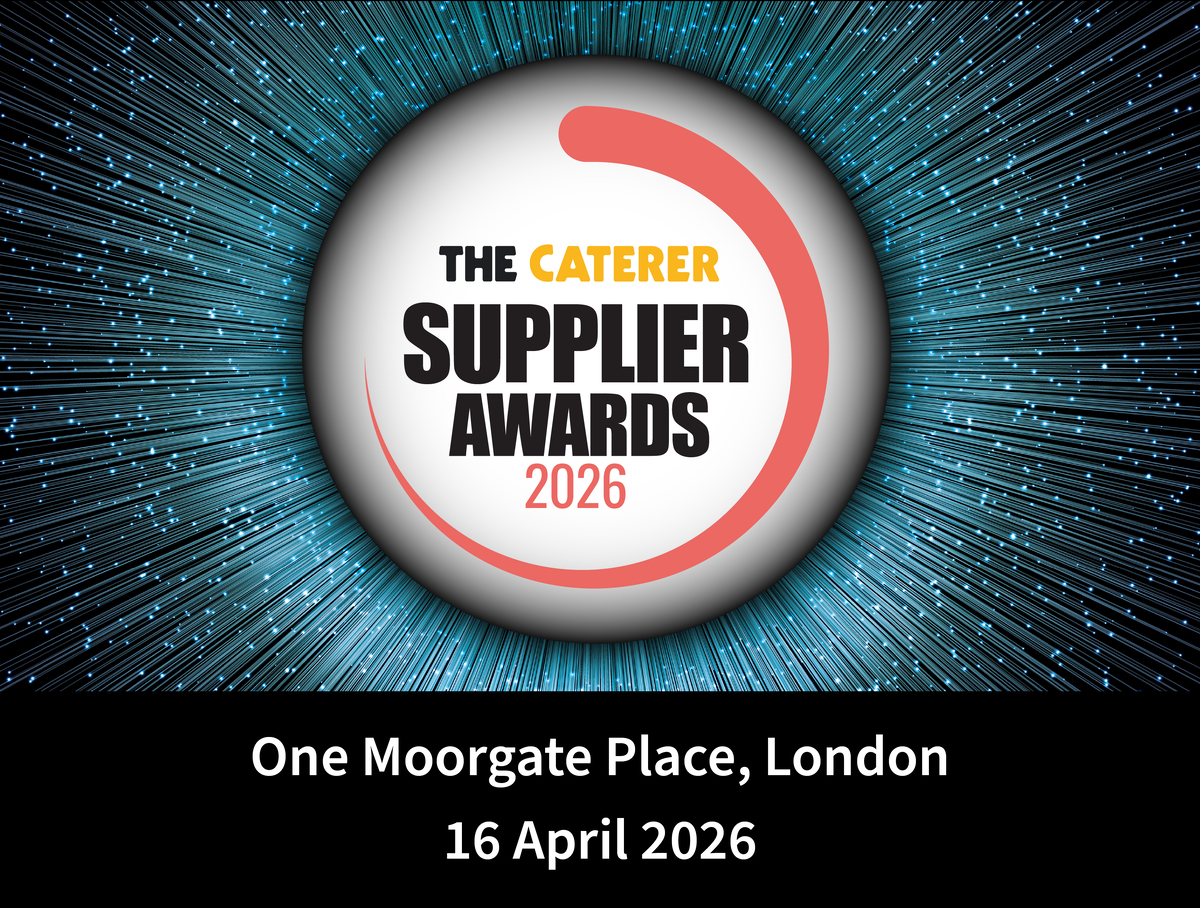Freeze the freshness – when frozen food is the right option
Suppliers claim that frozen food is fresher than fresh, locks in nutrients and makes more sense in these tough economic times. Diane Lane reports
The emphasis on fresh produce in today's catering industry is commendable and has won favour with the increasing number of diners who like the idea that the ingredients that make up their meals were delivered to the kitchen straight from the farm or fishing boat that morning.
However, from an operational viewpoint, the benefits of using frozen foods in delivering a menu are hard to ignore, especially in these tough economic times.
"Many caterers use frozen food for the convenience and money-saving benefits it provides, and yet it is a difficult thing for a caterer to admit to as the emphasis is placed so much on fresh, home-cooked food," says Marie Medhurst, sales and marketing director at Farmhouse Potato Bakers, suppliers of the Bannisters' Farm Range of frozen potato products.
Gulam Uddin, business unit controller for Birds Eye Foodservice, which fillets and freezes its fish at sea, says: "Frozen food often gets a bad rap from consumers, who wrongly believe it's not as nutritious or healthy as its fresh counterparts. But that could not be further from the truth. In fact, by quickly freezing certain foods, such as fruit, vegetables and fish, these foods better retain their freshness."
At Almondy, managing director Andrew Ely thinks there has been a shift in the perception of frozen food. He says: "The economic climate and the challenges we as an industry face, has meant that frozen food has become the hero product in many commercial kitchens. Firstly, there is a greater understanding and acceptance that frozen does not equal poor quality, and an understanding of the practical and commercial benefits offered by frozen food."
Research from the British Frozen Food Federation (BFFF) seems to bear this out, indicating that 97% of chefs now stock and use frozen food regularly - an increase of 20% since 2009.
"Frozen ingredients provide significant benefits to the caterer and can provide year-round availability of seasonal ingredients at a steady price," says Brian Young, BFFF director general. "It represents a significant profit opportunity for caterers, with our research showing that on average, operators can make a 24% saving by buying in prepared frozen food than by making a duplicate recipe from scratch."
It also helps operators to address various other issues, says Paul Turner, commercial manager food service, at MDC Foods. "In a difficult economic environment, caterers are faced with the challenge of meeting the expectations of diners who are facing decreasing budgets. As many food service operators are looking towards heavy discounting and buy-one-get-one-free offers, consumers are beginning to expect more for less when eating out of home.
"Additionally, diners are demanding choice and innovation on their menu and this has put pressure on caterers to offer an extensive menu without adding significant additional preparation or ingredient expenditure and creating more waste. Frozen food can help to boost margins here as caterers can serve ‘slow-cooked' risottos and potato gratin dauphinoise in a matter of minutes with little to no preparation."
The versatility and diversity of the frozen products on offer has increased in recent years, according to Simon Baxter, marketing and innovation director at Ardo UK, supplier of frozen fruit and vegetables. "Advances in freezing techniques mean that we are now able to offer a much broader range of high-quality products, including some traditionally thought to be ‘unfreezable', such as avocado, banana and cucumber. We have also perfected a way of freezing spinach leaves individually, which results in a superior product both in terms of taste and texture," he says
From a food safety perspective, many would argue that frozen food is safer than fresh, says Nigel Parkes, purchasing and marketing director at Atlantic Foods. "With many raw products, especially chicken, there is a significant risk of contamination either through handling the product or via cross contamination from work surfaces, containers or storage areas such as a fridge."
Reducing food waste is another advantage. "Wastage is a growing issue for caterers and a costly one at the moment because of high food inflation and that is why a growing number of operators are opting for frozen rather than fresh ingredients," says Mohammed Essa, Aviko general manager for UK and Ireland, while Tony Davison, commercial manager food service, Quorn Foods, adds: "Minimising food going into the bin is great for sustainability, a key priority for businesses today, and allows greater financial control."
Jayne Hall, Moy Park Foodservice's marketing manager, says: "A growing number of caterers are appreciating the practical benefits of frozen food in terms of its speed of preparation and ease of use which means it can be prepared by people with limited kitchen skills."
Certain prepared frozen products, such as a kitchen staple like pastry, can ensure consistency. John McKears, food service sales manager for Jus-Rol Professional, whose frozen pastry range aims to help caterers simplify the baking process, says: "Making pastry can be very time consuming when you consider the balance of ingredients and the risk of over blending or under blending the mix - all of which will have a big impact on the end result, especially when it comes to delicate pastries such as puff and filo."
The benefits of frozen food are particularly advantageous in the cost sector. "One of the key challenges in the care catering market - including healthcare, care homes and community meals - is ensuring that food, and nutrition specifically, doesn't become the casualty in the face of ever-tightening budgets," says Ian Stone, sales, marketing and development director at Apetito.
"Frozen can hold the key to balancing cost-efficiency with the provision of high-quality, nutritious food. The ability to offer a wide selection of meals that cater for medical conditions, cultural preferences and personal tastes, coupled with increased portion control, means the use of frozen food can significantly reduce wastage - an important consideration for hospitals and care homes that are under pressure to make cost savings."
It's a view shared by Julie Lardie, food service development dietitian at Tillery Valley, which produces 600,000 chilled and frozen meals per week for the healthcare and education sectors, local authorities and community meal services across the UK. "Matching dietary requirements to shrinking catering budgets is a challenge," she says. "Frozen options can be more cost-effective than cooking from scratch, and also help to relieve pressure on resources that are often strained while maintaining the dietary standards required. Chilled and frozen options offer caterers greater flexibility, and offer patients real choice. At a time where hospital meals remain a major public concern, extra variety can have a big impact on patients' mealtime experiences."
debunking frozen food myths
Perception Frozen food is an inferior choice in terms of quality and flavour.
Reality BFFF sensory research in which 32 chefs compared fresh and frozen samples including tuna steaks, duck breasts, wholemeal bloomer and puff pastry showed no statistical sensory difference between frozen and fresh foodstuffs.
Perception Frozen food is not as nutritious as fresh food.
Reality Sheffield Hallam University's Centre for Food Innovation compared the nutritional profile of a range of fresh and frozen ingredients and meals. It found that in frozen food, the nutrients are locked in until they reach the diner, while fresh ingredients lose some of their goodness.
defrosting best practice
Susan Werro, from the Society of Food Hygiene Technology (SOFHT), which promotes best practice in food safety and hygiene in food manufacturing and food service, explains the importance of defrosting frozen food correctly. Freezing does not kill all bacteria; it simply prevents its growth. Foods should be rapidly frozen to below -18°C to ensure both product quality and safety on defrosting. The risk of bacterial growth is still present when you defrost food.
Bacteria will grow rapidly between 5°C and 63°C and so food should be defrosted at the lower range between 5°C and 10°C. If food is left to defrost above this range there is a risk of bacteria multiplying to dangerous levels. This is of particular importance for any cooked, ready-to-eat food you are defrosting.
It is also important to properly defrost raw foods as excessive levels of bacteria may not be killed during cooking. It should also be remembered that the bacteria that may start to grow during the defrosting process may also produce heat-stable toxins that will survive cooking. Raw foods should be defrosted separately from cooked foods to prevent cross contamination of defrosted raw liquids to cooked ready-to-eat foods.
smaller crystals mean fresher flavour
Brian Young, director general of the British Frozen Food Federation (BFFF) Technology has significantly improved since the introduction of quick freezing in the early 20th century. The quick-freezing technology used in frozen foods results in significantly smaller ice crystals than food frozen at home or in a commercial kitchen. This means that frozen food is able to maintain its original qualities and perform as well as fresh.
The quick-freezing process locks in the nutrients and flavour from as little as a few hours after harvest, slaughter or catch -so there is no need for preservatives. By quick-freezing food at its peak, the original characteristics - flavour, texture and appearance - are maintained.
contacts
Almondy
01604 858522
www.almondy.com/uk
Apetito
0870 605 0293
www.apetito.co.uk
Ardo
01233 714714
www.ardouk.com
Atlantic Foods
01252 846500
www.atlanticfoods.co.uk
Aviko
01442 239536
www.aviko.co.uk
Birds Eye Foodservice
0800 028 9997
www.birdseyefoodservice.com
British Frozen Food Federation
01400 283090
www.bfff.co.uk
Farmhouse Potato Bakers
01262 605650
www.bannistersfarm.co.uk
Jus-Rol Professional
0800 626893
www.jusrolprofessional.co.uk
MDC Foods
01582 698007
www.mdc-foods.co.uk
Moy Park Foodservice
01480 445900
www.moyparkfoodservice.com
Quorn
0845 602 9000
www.quornfoodservice.co.uk
Tillery Valley 01495 321990
www.tilleryvalley.com
tvfsales@tilleryvalley.com

